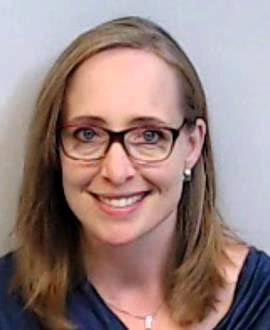Alberta will offer a free, preventative RSV shot to some high-risk newborns this fall, but it is stopping short of providing universal coverage to infants, which some other provinces are opting to do.
The antibody injection nirsevimab (sold as Beyfortus) was approved by Health Canada in 2023 and several other provinces are providing it to all newborns. The single dose shot contains lab-made proteins that act like those created by the body’s own immune system.
Starting in November, the injection will replace the monthly shot Palivizumab (Synagis) that was already being provided to some high-risk infants.
In 2024, National Advisory Committee on Immunization recommended provinces build towards universal RSV immunization program for all infants, and that nirsevimab was the preferred option. It also said programs could be introduced in stages depending on supply, cost-effectiveness and affordability.
Ontario and Quebec started offering the antibody shot to all newborns last year.
And, while the exact eligibility details vary, other provinces including Saskatchewan, Manitoba, P.E.I. and Nova Scotia have announced wider coverage plans for the coming respiratory virus season as well.
Nunavut, the Northwest Territories and Yukon also offer coverage.
Meanwhile, Alberta has opted to take a targeted approach to offering nirsevimab.
Doctors urge wider coverage
At Alberta Children’s Hospital, where patients are starting to show up with the illness, Dr. Sidd Thakore is preparing for a busy RSV season.
“We do know it’s going to start ramping up in the next couple of months,” said Thakore, a pediatrician at the Calgary hospital.
He’s pleased the Alberta government will provide nirsevimab to high-risk babies. But he would prefer to see the province offer universal coverage.
“As a pediatrician that sees this year in and year out, knowing that there is a prophylaxis for RSV – something that we can actually do to decrease the severity of it – and not having it available for all those children that are still relatively high risk is a bit unfortunate,” said Thakore.
While respiratory syncytial virus often causes mild cold-like symptoms, it can lead to more serious illness in young children (as well as older adults), resulting in hospitalization and ICU admission.
According to the National Advisory Committee on Immunization, RSV is the most common cause of bronchiolitis and pneumonia in babies and young children.
More than 800 Alberta babies under the age of one were hospitalized due to RSV during the last respiratory virus season, according to provincial data published earlier this year. One infant died.

Edmonton neonatologist Dr. Amber Reichert said doctors have been told babies who are eligible for nirsevimab include those with specific health conditions, like congenital heart defects, and those who have been admitted to the neonatal intensive care unit.
While she’s relieved the Alberta government is offering nirsevimab to some infants, she too had hoped the Alberta government would provide wider coverage.
“I do worry that it doesn’t necessarily protect all of the vulnerable babies,” said Reichert.
“Babies in the newborn period are more susceptible to this illness because of the nature of having immature immune systems and very small airways.”
According to Reichert, some babies get so sick they end up intubated in the NICU and requiring mechanical ventilation.
“I’m not entirely certain it’s going to reduce our admission rates in the neonatal intensive care units,” Reichert said.
“A good number of admissions happen with babies that don’t meet eligibility criteria for nirsevimab, even with the expanded criteria. So I’m a little bit concerned that it might be a little bit short-sighted and that we haven’t actually looked at our local statistics and our local admission rates to help make those decisions.”
Government response
The Alberta government said it continues to monitor RSV trends.
“While RSV can cause serious illness in specific high-risk groups, it results in fewer severe outcomes at the general population level,” a statement from the Ministry of Primary and Preventative Health Services said.
“This is an important consideration when evaluating broader immunization programs.”
According to the National Advisory Committee on Immunization, RSV causes up to 16 times more hospitalizations among young children compared to influenza.
“While the risk of hospitalization is higher in the presence of comorbidities, the majority of infants and young children hospitalized with RSV have no underlying comorbidities,” the committee noted.
According to the Canadian Immunization Guide, nirsevimab has been shown to reduce hospital admission associated with RSV by 81 to 83 per cent.
CBC News asked the Alberta government for a list of who specifically is eligible for nirsevimab, but it did not share those details.
“Eligibility criteria for high-risk infants, including whether NICU admission qualifies, will be updated and shared soon,” the ministry said.
A cost-effectiveness and feasibility analysis is now underway to inform decisions for the 2026-27 respiratory virus season, according to the ministry spokesperson.
Meanwhile, doctors are growing increasingly worried about the capacity of hospitals to deal with surges during respiratory virus season as demand increases.
And opting for universal nirsevimab coverage could help ease some of that pressure, Thakore said.
“Now we do have something that we can use. And we do know that the population of Alberta continues to increase … and we only still have a limited number of hospital beds,” he said.
“So odds are we’re going to have increased challenges this year.”






